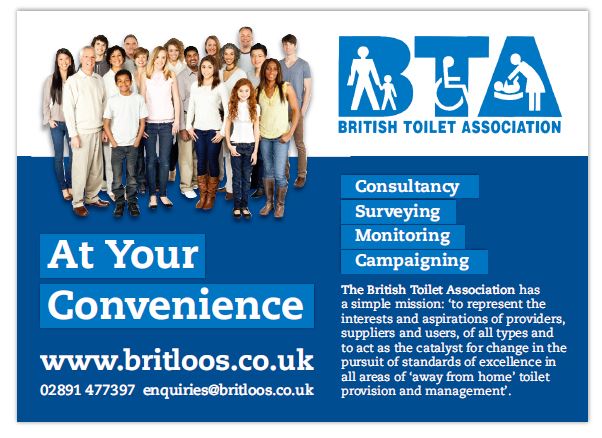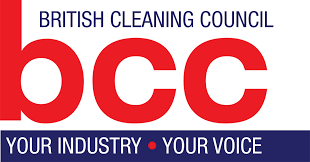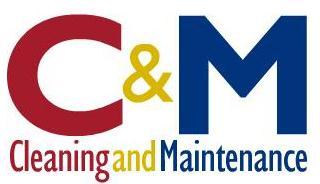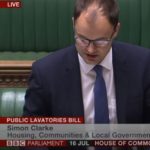Category Archives: Featured Articles
BOYS need BINS


We are currently working closely with a number of organisations on developing a campaign to encourage government to devise a legal requirement for the inclusion of sanitary bins in Mens Toilets.
Over 2 Million men across the UK may have an urgent need to visit the toilet to remove or replace a stoma or incontinence product. Until now the soiled unit would have been disposed of in a Litter bin (if provided) or they may be forced to carry the used item away from the toilet perhaps to home.
Female toilets have always been well provisioned with sanitary bins in nearly every cubicle to cater for the disposal of towels & pads.
In recent months we have joined forces with Prostate Cancer UK and together we are gathering research and evidence to support our lobbying of national government to make a change in the current legislation to make it compulsory for providers to address the needs of all males who suffer with the problems of proper disposal.
A nationwide email survey has been distributed by supporting organisations to all their members and major organisations providing public toilets. These results will help us to try and understand the extent of the problems being faced by both the users and the providers.
WE NEED YOUR HELP !
The BTA are supporting the All Party Parliamentary Group for Bladder
and Bowel Continence Care’s campaign called Boys need Bins. The campaign aims to raise awareness of male incontinence and examine what facilities currently exist for incontinent men. We’ve partnered with
other national charities/associations to help achieve this:
- British Toilet Association
- Bladder Health UK
- International Longevity Centre (ILC)
- Men’s Health Forum
- Prostate Cancer UK
- Tackle Prostate Cancer
- Truckers Toilet UK
How you can help
We’d like to hear from those responsible for the hygiene provisions in your toilet facilities, to get an
understanding of the current need for male hygiene bins. If this isn’t you, please forward this email on to
the most relevant person in your organisation.
Our 5-minute survey is completely anonymous and asks for no personal details, so please share as much
detail as you want. There are no right or wrong answers.
https://project.tolunastart.com/tqsruntime/main?surveyData=ewqEMryCmi3LgTze45dHLMZCvYremf0kCcxST2LGWp2oe+/cAaUPfZeF1+qBMT9s
Your feedback will help us start conversations with the Government and key decision makers who can
create a positive change for men affected by incontinence.
The deadline for submission is Friday 26 May 2023.
If you have any questions about the survey, need support with completing it, or want more information on
this topic more generally, please contact campaigns@prostatecanceruk.org
With our thanks and best wishes,
Raymond
New Bill for Public Toilets moves to the Lords

In October of 2022 a “Levelling Up and Regeneration” Bill was introduced into Parliament by Ministers that will address a number of issues that the country facres ciming out of Covid and redressing the decline in local services and planning. The Bill has passed through the Commons and is now being read and debated in the House of Lords. It is hoped that the Bill could become an ACT of Parliament before Easter 2023.
It is with great delight that The BTA can report to all our Members Colleagues and Friends that within this Bill is a section specifically relating to much of our unrelenting work and ethos over the last twenty years.
Clauses 57, 58 and 59 refer directly to the appointment of a Toilet Commissioner whose priority will be to access the provision and need for public toilets throughout England and put in place a National Strategy for Local Authorities to follow – to devisie a Toilet Plan for each council area.
Working with an Independant Panel of advisors the commissioner will have to report to the Secretary of State for the Dept of Levelling Up and funding should become available for LA’s to enact some new developments.
The BTA will, of course, be offering oits full support to the Commissioner ,the government and Local Authorities in assembling and completing these tasks within the given timeframe. However, it is hoped that this is an exciting begining of a more sustained stategy for the future toilet provision across all the nations.
The following is an extract from the Hansard Report
New Clause 57
Review of England’s public conveniences
“(1) The Secretary of State must, within 6 months of the day on which this Act is passed, appoint commissioners to consider the level of need for public conveniences in England and the extent to which current provision matches that need.
(2) The Secretary of State must publish the report of the Commissioners before the end of the period of 12 months beginning with the day of their appointment.”
New clause 58—Public convenience plans—
“(1) Each tier 2 local authority in England must produce a Public Convenience Plan for their authority.
(2) A plan under this section must be formulated in consultation with local partners and the public.
(3) Such a plan much consider—
(a) the current level of public convenience provision,
(b) the current level of demand for such conveniences,
(c) what gaps there are in provision, and
(d) the needs of communities with protected characteristics under the Equality Act 2010.
(4) Central government must provide funding to local authorities to cover the costs of this new responsibility.”
New clause 59
Business rate relief scheme for business making toilets publicly available—
“The Secretary of State must by regulations make provision for a scheme under which if a business liable to business rates permits non-customers to use their toilets as a public convenience, the area of the premises containing the toilets is discounted from the calculation of the premises’ overall rateable value.”
In 2016 a BBC report highlighted that local authorities had closed one in seven public toilets between 2010 and 2013. The report identified 10 areas in England and Wales with no council-run toilets at all.
By 2018, the follow-up report found that the number of areas without any public conveniences had increased to 37. That is a trend likely to accelerate with the pressures on local authorities.
It has led to closures or transfers to perhaps voluntary groups or charities. The good will engendered in that is a welcome thing, but it means that accountability for that essential social infrastructure has been lost. We have to be clear about this. I do not think public toilets are a “nice to have”.
Lack of adequate facilities disproportionately affects all sorts of groups, including people who work outdoors, people with ill health or disability, the elderly and the homeless. Such essential facilities can make the difference between being able to confidently leave the house or not.
Improved Legislation and more funding needed
23 July 2021
The British Toilet Association has called for improved legislation and more government funding to address the current “appalling” lack of public toilet provision.
Public toilets are in “crisis” and rapidly vanishing, the body said, with many of those that remain displaying totally unacceptable levels of cleanliness and hygiene and the COVID-19 pandemic has only made the situation worse.
Many public toilets have been locked down since the start of the pandemic due to a lack of cleaning, funding or any government guidance on how to get them fit for purpose, The British Toilet Association (BTA) said.
The public was being forced to go to the toilet in streets, beaches, open spaces and beauty spots, causing street fouling figures to escalate, aggravating the risk of COVID-19 transmission and leaving the local authorities to foot considerable clean-up costs, it added.
“Anyone suffering with an accessibility issue or those caring for someone who has limited mobility or a medical condition is socially excluded and potentially deemed prisoners in their own homes.”
–Raymond Martin
Managing Director, BTA
No Legal Requirement for Local Authorities to Provide Public Toilets
With no legal requirement in place to force local authorities to provide or run public toilets then, the BTA believes the majority of councils across the UK do not allocate sufficient resources or funds to the provision of public toilets.
It is calling for the government to make sanitation and hygiene a major priority and support local authorities to stop the closures, open new facilities and establish a new set of standards of hygiene and cleanliness.
The BTA has been lobbying for action since the pandemic began, asking questions of Ministers and the PM, writing to Ministry of Housing, Communities and Local Government and has taken part in a Zoom meeting with Lord Stephen Greenhalgh, the Minister for Building Safety and Communities and other Members of the House of Lords but without an adequate response.
It is currently preparing to write again to Lord Greenhalgh and also to the new Health Secretary, the Rt Hon Sajid Javid.
The BTA is a not-for-profit organisation that campaigns for the highest possible standards of hygiene and provision in all “away from home” toilet facilities across the UK. It understands that over a third of the population need to visit a toilet on an urgent basis, often at very short notice.
BTA Managing Director Raymond Martin said: “We are appalled at the total lack of funding over many years and extremely concerned at the closures and unprecedented low levels of public toilet facilities before, during and going into the future. This is now a crisis.
“Across our beautiful country, that was once the envy of the world because of its sanitation systems and hygiene controls, those responsible have allowed us to fall so far from the standards our forefathers achieved.
“Then along comes one of the deadliest pathogens for many generations and unbelievably our ministers and their government colleagues cannot see the need or make available any primary funding to tackle and fight this continuing threat to our nation’s daily existence.
“From the very first announcement of the arrival of COVID-19 the government has been repeatedly telling everyone to “wash your hands” but how much money has it allocated, spent or even committed to increasing sanitation and hygiene during a pandemic? The answer is nothing.
“Hand washing materials cost money, hot water costs money, cleaning materials and staff cost have to be factored in, as well as the return to an acceptable level of provision.
“The lack of public toilet provision leaves families with young children, business travellers, drivers delivering our daily essentials across the country, staycationers, day-trippers those on longer holiday breaks, older persons wanting to visit family and many more people wondering when they might find relief.
“COVID is transmitted in human excrement and urine so forcing the public to use our open spaces to go to the toilet can only be a recipe for continued or increased transmission and incubation of this most deadly pathogen and any future variants.”
Accessibility Issues
“Anyone suffering with an accessibility issue or those caring for someone who has limited mobility or a medical condition is socially excluded and potentially deemed prisoners in their own homes.
“Footfall in shops and many high streets continues to remain low as the lack of decent toilet facilities is driving shoppers away to out of town superstores, leaving the villages and town shops with diminishing revenues and the constant threat of closure.
“The BTA has spent the last eighteen months primarily firefighting the lack of publicly accessible toilets across the UK but with very limited success without the support of this government.
“It’s time that this government made sanitation and hygiene a major priority and supported the local authorities to stop the closures of public toilets, restore standards and tackle this pandemic in our public buildings and spaces.”
Picture: a picture of a toilet
Article written by Ella Tansley | Published 23 July 2021
Coronavirus (Covid-19) BTA GUIDELINES


The BTA has been continuing to work throughout the pandemic to offer advice and guidance to all our members as well as providers and suppliers; on the importance of publicly accessible toilets. Each day we have been talking with experts around the world on cleaning and hygiene technologies and methodologies – WOW it;s been a steep learning curve !
This virus is posing a lot of questions on HOW do we kill it – WHAT do we use to kill it, HOW often do we apply product and/or WILL it return.
The government has offered little if NO guidance other than Hand washing and really hasn’t put any serious thought into the effects or long-term battle. From our research to date we are beginning to understand the quickest, safest and hopefully most effective methods to treat surfaces.
1. STEAM – high pressure steam cleaning will certainly kill the virus. So opening up a toilet block using this method offers the best results. It’s then a matter of how many times you can repeat this process.Some cleaning companies are using Hand-Held steaming devices to get into tight recesses
2. UV LIGHT – is very effective on all viruses (including Covid19) and can be applied using a hand-held wand. Care must be taken to apply the light for a period of several seconds on specific areas – as it takes a few moments for the UV to do its job. We have seen larger industrial units that circulate air through a UV prism which is very effective – but the cost of these is in excess of £3k.
3. One of our BCC colleagues helped to set up the Nightingale Hospital in Glasgow and her role was to train the cleaners. She went at length to maintain that good thorough cleaning with mild detergents or simple soap/fluid and hot water was just as effective. Again the importance of continued cleaning was the absolute key to maintaining a high level of hygiene.
4. BLEACH — I know it’s a forbidden substance in many councils – but it certainly kills Covid-19. We are aware that in these extremely threatening times that many cleaning operatives (fearing for their own safety as well as wanting to keep the public safe) may be resorting to using a mild/diluted solution to make sure that the surfaces are clear and free from this deadly intruder. We’re not condoning it – just putting it out there.
As you would expect, we are being bombarded with a range of products that companies would like us to endorse — but you will all understand that we cannot specify any particular brands or technologies until we have verified the bench tests & clinical trials — and in most cases that is probably many months away. So we are planning to feature some products ad processes that might give you ideas and concepts to persue yourselves.
We have repeatedly asked this government for the opportunity to lead a team of specialists/experts in working to find clear and correct solutions for the vast array of issues regarding public toilets. Everything from:
Surfaces (a complete range of different types..wood,plastic,stainless steel, formica, paint etc..) and we need to understand how long the virus lives on each – if it is affected by heat/light/cold/rain.wind ??
Touch Points – handles rails, flushes, taps, dispensers, door bolts, partitions Airflow – warm air dryers, aircon systems, windows and ventsSoap – non touch dispensers – replacing with sanitizing liquid – charging
External Sanitizing stations – for members of the public who don’t need the loo or at remote locations
Entry & Exit points – how do people enter and leave the facility – how do we want them to? Clinch/Pinch points? Control and Security
We have raised the issue of emergency funding to get these units brought up to an acceptable standard – perhaps even upgraded – to date there has been absolutely NO response.
We have raised further concerns on the projected increase in tourism and “STAYCATIONS” this year particularly. If our citizens are too scared to travel abroad to other countries for fear of catching any 2nd wave — then it is fair to assume that many may choose to visit the beautiful hills, valleys and seaside resorts of this country and therefore significantly increased numbers will expect to find the toilets open, clean and fit-for-purpose,
As there is still no PRIMARY or STATUTORY LEGISLATION, and more fundamentally no direct FUNDING that compels Local Authorities to to provide Publicly Accessible Toilets then we will continue to see councils struggling to provide clean, hygienic facilities across the country.
The government has been repeatedly asked to make “Emergency Funding” available to get these units reopened and more importantly upgraded to an acceptable standard to hekp fight the current & future viral threats. But again they have failed to respond or focus on these vital facilities. Several letters have been sent to various politicians asking them to address this issue and to make available some revenue to help councils to fight this dangerour viral threat by bringing these essential services up to speed and ready to facilitate the public in the quest for increased hygiene & safety.
£8.2 billion has now been granted to help fight this pandemic and to get the country’s economy flowing again. Without the legislation or requirement for councils to provide decent clean public toilets – many will choose to spend these monies on their mandatory services and long term contracts and our essential facilities will fall further into decline – placing all of us at increased risk of not being ale to find relief or hand-washing facilities when we most need them. Those councils who understand and embrace the need for public toilets have already indicated a substantial rise in the cost of entry — prices will rise to perhaps 50p – £1.00. Many units will move to “card only” access to prevent further contamination from coins. Customers will have to accept that this revenue will surely be needed to sustain the expected levels of hygiene and maintenance in the coming months and years ahead. It might also help to eradicate the problems that many councils are having with homeless sleepers and anti-social activities (including drugs)
BTA continues to work with the British Cleaning Council (BCC) and the British Standards (BSI) to review policies and directives to cleaning operatives, suppliers and providers. Primarily we’re all remote working so contact time is limited and many elements are taking longer to get sign-off or final agreement. The BSI has produced a “Safe working during Covid-19 pandemic” guidance document for orgaisations – follow the LINK below
BSI Guidance on: Use of toilets
The organization should consider additional measures to facilitate the safe use of toilet facilities (including Changing Places toilets used by disabled people) by workers and other interested parties. Actions can include:
a) managing the use of toilet facilities to avoid crowding;
b) establishing more frequent and enhanced cleaning (including touch points such as toilet seats, locks, flushes, grab rails, hoists) and waste disposal;
c) limiting the number of cubicles and urinals available in a block of toilets, to promote physical distancing;
d) using signage to encourage users to close toilet lids before flushing, where lids are fitted;
e) ensuring a system is in place to allow queues for toilets to form outside of the facility rather than in the confined space;
f) requesting workers or visitors to use a single designated set of facilities within a workplace, taking into account users with special needs who cannot comply with this;
g) providing paper towels or electric hand dryers, and ensuring levels of paper towels are monitored and maintained and that there is frequent, safe disposal of waste;
h) using automatic rather than manual equipment (e.g. sensor operated taps, soap dispensers, flushes, foot-operated bins); and
i) increased monitoring and replenishment of supplies (e.g. soap, sanitizer, paper towels, toilet paper).
.
As always, I would be delighted to discuss and expand any of the points raised or still causing you any concern. You have my numbers – and I would welcome a call. Please stay SAFE and ALERT!





























